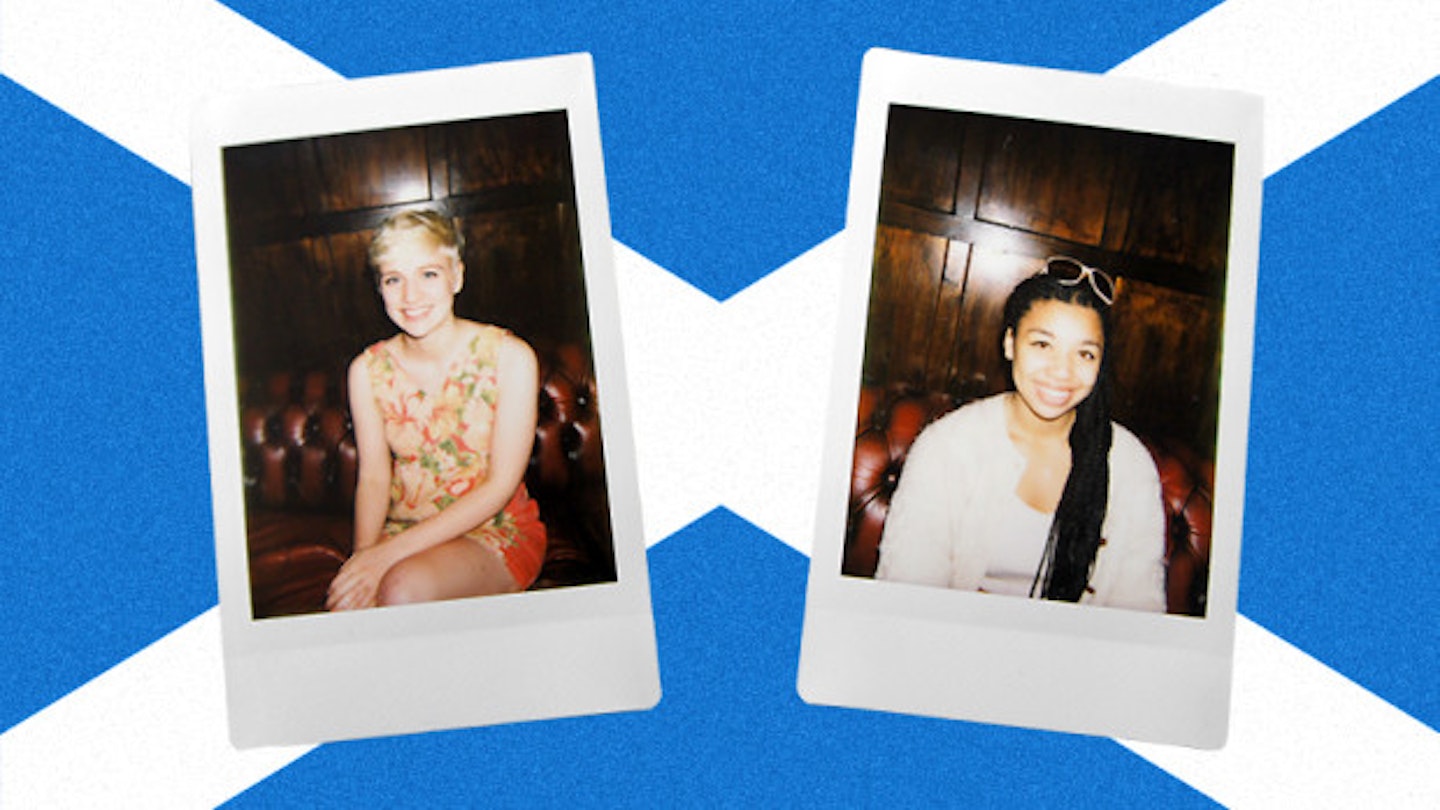
Why I’m voting Yes – by Lucy Brisbane
As referendum day creeps closer, I’ve started speaking quietly lest people notice my Scottish accent and ask me for my opinion. Talking about Scottish independence is guaranteed to start an argument. Even my happily married parents are on opposite sides of the fence and my best friend and I can’t discuss it at all without gritted teeth and raised voices.
But as tense as it might be, all those slamming doors and terse arguments are actually a symptom of the exciting political energy this debate has created, one that will hopefully stay long after the vote is over.
And this is never more apparent than in voters my age (I’m 21) who have always viewed the British political system as a game of ping-pong between posh boys with PPE degrees, seemingly on different sides but ultimately hitting the ball the same way. No wonder we’re meant to be apathetic.
READ MORE: Ask An Adult: What Will Happen If Scotland Votes For Indpendence
In the British voting system things change at a snail’s rate – campaigning for anything other than the status quo is like pissing into the wind. But the independence debate has given people a rare chance to actually change something.
It’s that opportunity to affect change that’s driving me to vote yes. I’m not a flag-flying nationalist and have nothing against Britishness. To me the referendum is about making real change not arbitrary identities. Independence will give the Scottish nation a chance to do things differently.
With a smaller electorate, more representative voting system, and a bigger drive to create a truly equal society, exciting change could come from it and the voices of different ages, genders, ‘classes’ and minorities are far more likely to be heard.
Independence will facilitate a new kind of politics outside of the elitist British system that is so deeply bogged down in Old Boys’ Club bullshit about ‘scroungers and strivers’.
I didn’t always feel so positive about voting yes, but the debate has made me realise that Scotland is a country buzzing with positive political energy, even if our current leader does look like a pomegranate and acts just as seedy.
I understand why people like my friend Charlie are put off voting ‘Yes’ by the often aggressive passion and nationalism of some ‘Yes’ supporters. However, I’d rather put up with cringeworthy flag flying and the element of fear than stick with what we’ve got.
Charlie and I have such similar lives, backgrounds and political views generally, but the reason the referendum is dividing people in such unusual ways is that it’s less about ideology and more about how willing you are to take a leap of faith.
I decided to vote yes when I realised that the only thing we can be sure of is: if Scotland’s residents vote No, all Brits will remain stuck watching the same game of political ping pong for the foreseeable future. I want something different, something new, something better and I’m sorry England, but we can’t do it together.
Follow Lucy on Twitter @lucybrisbane

Why I’m voting No – by Charlie Brinkhurst-Cuff
Heading home to Edinburgh for the first time in a couple of months in August, I noticed the change straight away. Alex Salmond’s flabby face lurched out at me from newspaper front covers. Massive Yes posters emblazoned tenement windows. As soon as I sat down for a casual drink with old school friends in a local pub, I only narrowly avoided becoming embroiled in a massive argument.
The referendum is big news in Scotland.
I’ve never been one to keep my mouth shut when I disagree with something, but it took me two years to decide that I was going to vote No on September the 18th. As a young, left-wing Scot, I’ve never liked smug Salmond and the SNP. But I initially thought that independence could work, thanks to our tendency toward social democracy. However, as one friend put it in a particularly heated Facebook argument – which my news feed is full of at the moment – ‘You are all somehow assuming that a vote for independence means a vote for social justice. This is patently untrue.’
I just don’t believe that the idealistic arguments for Scottish independence hold up against the legitimate grievances of the No campaign. Moving to Edinburgh from London as a child, I witnessed first-hand the derision that some Scottish people have towards the English and how quickly this can become an unpleasant form of nationalism. That nationalism has undeniably fuelled the Yes campaign. I also find it increasingly difficult to buy the untenable optimism of the Yes campaign. And simply put, I don’t think leaving the UK is going to effect any of the changes they claim it will.
I do understand why Lucy supports the Yes campaign, but it’s just that, in my view, I feel she is projecting all kinds of unproven possibilities onto the possibility of independence. We essentially want the same outcome for society, but the binary nature of the referendum, means there’s no way our different points of view can be reconciled.
At the moment, with the polls as tight as they are, it’s difficult to say what the outcome of the referendum will be. Among my friends, our views are entirely representative – we’re split 50/50 too. But we’re all disenfranchised with Westminster politics, and there’s no denying that this is a young person’s referendum. The fact that 16-year-olds will be able to vote exemplifies this, as does the increasing use of social media to fuel the debate.
‘Cybernats’ (a pejorative term of online supporters of Scottish independence) and Better Together campaigners alike will frequently start vehement arguments that pit a utopian independent future against the pessimistic Better Together outlook. But don’t think it’s only young people who care passionately about the debate: at a recent party one of my friend’s dads may have ended up calling an argumentative No-voting twenty-something a ‘fucking wanker.’
The next few days are going to be scary – and if the outcome is Yes it will definitely change my life. I was born in England, so I might even have to apply for Scottish citizenship. My parents have been thinking about leaving Scotland anyway, but a Yes vote could certainly speed things up on that front. But whatever the result, and however it impacts on me personally, no-one can deny that the political discourse that this referendum has encouraged has been braw. Long may it continue.
** Follow Charlie on Twitter @CharlieBCuff**
**Like this? Then you might also be interested in: **
Nick Clegg Has Taken A Brilliant Pop At The Sexist Coverage Of The Cabinet Reshuffle
This article originally appeared on The Debrief.
